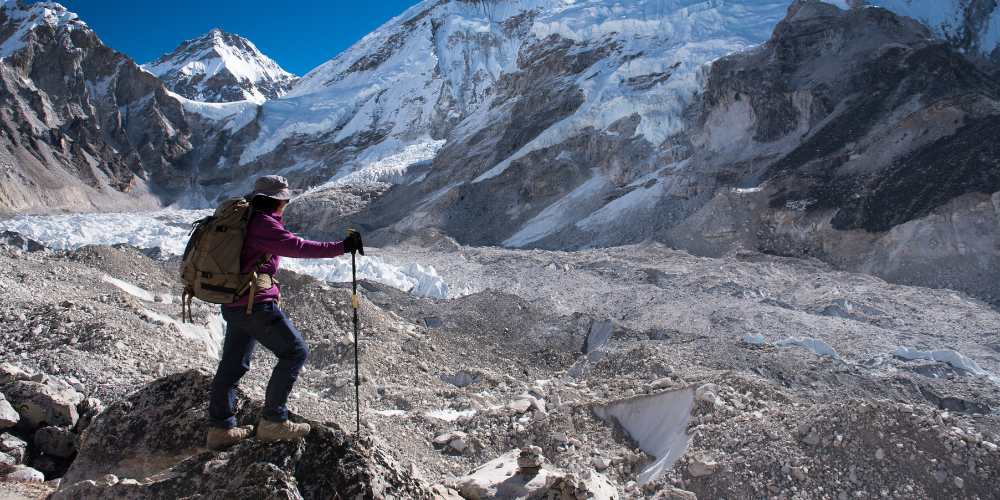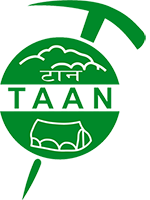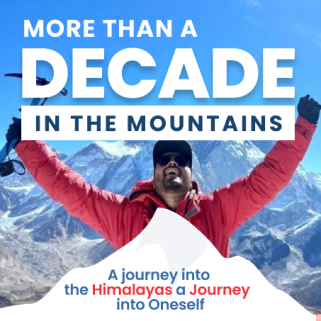
Insurance For Everest Base Camp Trek

Insurance For Everest Base Camp Trek
swotah travel
2505
05, 12 2022
You're all set to go on a fantastic trek to Everest Base Camp, but have you thought about insurance? You might not need it if you're only going for a short hike, but for anything more serious, it's essential. We will talk about everything you need to know about insurance for trekking in Everest, from what it covers to how much it costs.
So, what are you waiting for? Get insured and start planning your dream trek today!
Why You Should Get Travel Insurance for Everest Base Camp
You're probably thinking, "I'm only going on a short trek to Everest Base Camp. Why do I need travel insurance?"
The reason is simple: anything can happen while you're away from home. And if something goes wrong, like - if you lose your passport, your luggage is stolen, or you fall ill during the trip, travel insurance can help you get the medical care and assistance you need. It also provides financial protection in the event of a canceled trip.

That's why it's crucial to have travel insurance for any trip, whether it's a trek like Everest Base Camp or a long vacation. And luckily, obtaining travel insurance is easy and affordable.
Here are some of the lists we have discussed for the factors that can make things go wrong and need insurance. Let's dig out!!
-
Altitude
Altitude is one of the prominent reasons that play a role in deteriorating your trip. While Everest Base Camp sits at a high altitude of 5,364m above sea level, trekkers will likely get altitude-related illnesses and Acute Mountain Sickness.
-
Illness/Disease
While you travel to any destination, you never know if you will get caught with any illness. Since you will be traveling through some rural areas of Nepal in the Everest Base Camp Trek, illnesses are always the things to be considered before the trip. So, having insurance might be the best choice for your safety.
-
Accidents
Everest Base Camp has a mountainous and steep topography, so accidents are frequent in this area. Moreover, natural calamities are one of the mishaps you see in this region. Be sure to get insurance for accident safety.
-
Your Gears And Baggage
You never know what will happen to you and your baggage while on a dangerous trip out at Everest Base Camp. There are several records of missing or stolen luggage and trekking gear, so make sure you have insurance for your goods, too.
What Types of Insurance Are Available?
When it comes to insurance, a few different types are available to you. The first thing is to make sure that you are fully covered in the event of an emergency. Here are the different types of insurance that are available to you:
Travel insurance is a must-have for any trip. It will cover you if something such as an illness or injury happens while you're away. Make sure to read the fine print, as some policies only cover you if you're traveling internationally.
Medical insurance is also important. If something happens while on your trip and you need medical attention, your medical insurance will help to cover the costs. This type of insurance is especially important if you're hiking in a remote location where medical care may not be readily available.
Life insurance is another important consideration. Suppose something happens to you while on your trip; your loved ones will be able to receive a payout from the life insurance policy. In case of your death, this can help them cover the costs of your funeral and other expenses.
How to Find the Right Insurance for Everest Base Camp?
Visitors embark on one of the most amazing life adventures in Everest Base Camp. But before going, there's something you need to take care of: Insurance.
Finding the right insurance for your trek is essential. Without it, you could be on the hook for hundreds and thousands of dollars if something goes wrong. So how do you find the right policy?
Start by talking to your insurance agent. They should be able to recommend the right policy for your trek. Take a look over a few things to know before getting started:
-
What does the policy cover?
-
Are there any exclusions or limitations?
-
What's the deductible?
-
How much is the policy limit?
-
Is there a refund policy?
-
How long does the coverage last?
-
What's the cost of the policy?
Take your time and compare policies from different providers until you find one right.
What Coverage Options Should You Consider?
When having insurance for your Everest Base Camp trek, you should consider a few things. Firstly, ensure that your policy covers emergency medical and evacuation expenses, as these are the significant risks associated with adventure travel in this area.
Secondly, ensure it covers the cost of trip cancelation or interruption due to unforeseen circumstances such as bad weather or an unexpected illness. Thirdly, you may want to add coverage for delayed baggage – if your bags are delayed more than 24 hours, this coverage can help refund you for any additional costs incurred.
Finally, ensure that the policy includes higher operating costs at high altitudes, such as those experienced during an Everest Base Camp trek. With this coverage, you may be able to get the help you need if something goes wrong when you're on the mountain. So, do your research and make sure you're covered!
How to Read and Compare Policy Documents Before Purchasing?
Reading and understanding the policy documents when shopping for insurance is important. Before purchasing, you should make sure you read through everything thoroughly and that you know what each term means.
The first thing to look out for is exclusions. You'll find these outlined in the policy documentation, and these are items that the insurance provider won't cover. This can include pre-existing conditions, alcohol-related incidents, and certain dangerous activities. If you're doing something outside your control, double-check to ensure it won't be excluded from your coverage.
Then, look at the coverage limits for medical expenses and lost/stolen items; there should be both an overall limit and per-incident limits. These will help to give you an idea of what's covered—for example, if you get sick on your trek, how much will the provider reimburse? And if something gets stolen from your hotel room, how much of this can you claim back?
Finally, tuck into any additional benefits associated with the policy. For example, Canopy Travel offers customers special discounts on partner products like car hire and airport lounge access. Or if you're going on a multi-stop tour of Nepal, many providers offer cover for multiple trips in one year so keep an eye out for that too.

Best Practices to Follow With Your Purchased Insurance
Now that you know why you need insurance, let's talk about best practices to keep in mind while you plan your adventure. When you purchase insurance, make sure you read the fine print—there will likely be exclusions related to altitude sickness and other common ailments. Even if it's not explicitly covered, disclosing any pre-existing conditions is important as they may affect your coverage.
It's also important to acknowledge the activities you plan to participate in during your trip. If exclusive activities aren't typically covered, like heli-skiing or bungee jumping, ensure those are accounted for in your policy.
Finally, note down all the relevant contact numbers and documents and keep them with you in a safe place throughout your trip—it'll help if something unexpected happens and you need to get access to healthcare.
Following these steps will help ensure that no matter what happens on your expedition, you're adequately covered with the right insurance.
Is Insurance Compulsory For Everest Base Camp Trek?
Insurance is optional for Everest Base Camp Trek - you can comply with it or not opt for it; the choice is yours.
But the main thing to remember is to acknowledge the possible dangers before the trip. So we suggest it would be better if you have your insurance.
NEWSLETTER SIGNUP
Sign up to receive our trip ideas and travel offers!
Get updates and Exclusive Offers up to 20% Discount








